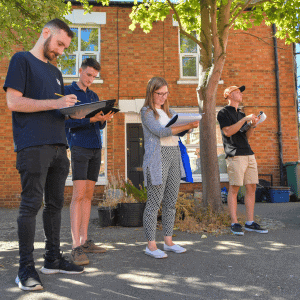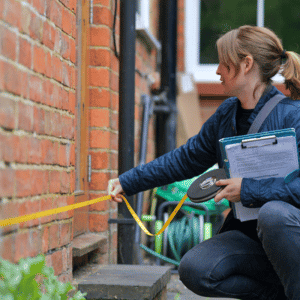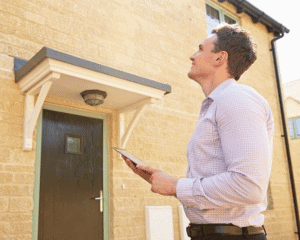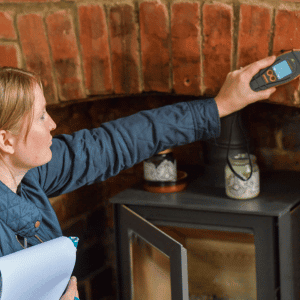How to get into surveying in the residential sector.
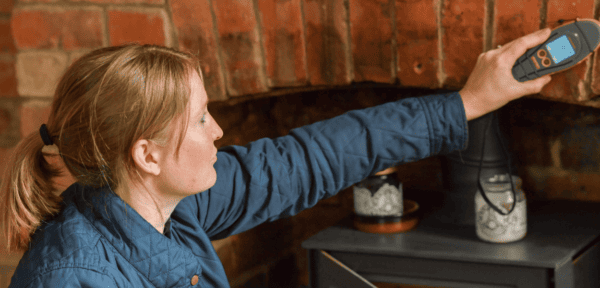
If you want to become a residential surveyor, the first important consideration is to understand what type of surveyor you want to be.
Surveyors work across all sectors of land, property, construction and infrastructure. According to the Royal Institution of Chartered Surveyors (RICS) there are more than 100 different types of surveyor who influence our homes, offices, shops and leisure. They are involved with how we travel, how we live and how we relax. The entry routes into each surveying profession will depend on the area in which you would like to work.
In this article, we focus on how to become a residential surveyor and how to get into surveying for those looking to pursue a career inspecting residential properties for homebuyers and homeowners.
What is a residential surveyor?
Not to be confused with a land surveyor, commercial surveyor or quantity surveyor, a residential surveyor investigates and reports on the condition of and risks associated with peoples’ homes. Commonly, a residential surveyor will be commissioned by a homebuyer to carry out a thorough inspection of the property they intend to buy and provide a report outlining the property’s condition, including any defects and causes for concern. Sometimes they will provide valuation advice, whether for a private client or a lender.
Fundamentally, residential surveyors provide peace of mind, ensuring that homebuyers are in the know before they make a big, irreversible commitment, enabling them to make an informed decision, budget accordingly, and even negotiate on price. For many, a survey can be the difference between moving into their dream home and buying a nightmare property riddled with damp or structural defects, or inheriting a Japanese knotweed infestation that costs a small fortune to resolve.
Why get into surveying?
Surveyors are in demand
There are 29 million residential properties in the UK and this number is only going to grow. Surveyors are already in high demand and as property numbers increase, the industry will need more surveying professionals to help keep the housing market moving.
Surveying is rewarding
Life as a residential surveyor can be extremely fulfilling. You can enjoy the personal satisfaction of knowing you are providing a valuable service to homebuyers and homeowners to keep them safe and informed, whilst benefitting financially, with an average basic salary of £61k after three years of employment*.
We spoke with one recently qualified residential surveyor who said: “I already earn nearly three times the salary I was on as an estate agent.”
Surveying can be flexible
The flexibility of a residential surveying role is largely dependent on how you choose to work, but many get into surveying for this reason. Qualified surveyors can practise independently or through an established surveying firm, depending on the level of flexibility, support, and job security you feel comfortable with. As an independent surveyor, you are your own boss and can manage your time in your own way, but a firm will likely offer more security by way of a steady salary, sick pay, paid holiday and a support framework.
Surveying is sociable
As a residential surveyor, you’ll often interact with homeowners and homebuyers as part of your service, plus you’ll be part of a wide and supportive network of property professionals.
Surveying is respected
The residential surveying profession is well-respected and, depending on the entry route you take to get into surveying, you will have the opportunity to join prestigious organisations such as the Royal Institution of Chartered Surveyors (RICS) and the Chartered Association of Building Engineers (CABE). Becoming a surveyor also means becoming part of an active community of likeminded people who support one another and share knowledge for the benefit of the industry.
How to get into surveying
There are various routes into residential surveying, each offering its own challenges and benefits depending on how you would prefer to learn.
The degree route
This is the most traditional route into the profession. You study for a university degree that’s accredited by the Royal Institution of Chartered Surveyors – often a degree in Real Estate Management or something similar. Courses are available at universities across the country with full time, part time, distance and flexi study options to choose from. The degree route involves a significant time investment, taking 5+ years to complete full time including 3 years in full time education and then additional time to complete the Assessment of Professional Competence (APC) should you wish to join the Royal Institution of Chartered Surveyors. Some universities work with employers to offer degree apprenticeships to get into surveying, where you study for a degree alongside employment as a trainee surveyor.
The in-house training route
Some companies offer in-house training programmes to onboard new surveyors, so you may find an opportunity to join an existing surveying firm as a trainee. Often, however, you will be expected to have a relevant degree and/or direct experience in the built environment before you will be considered.
The vocational training route
This route offers a part-time, blended learning approach to becoming a residential surveyor and property valuer, where training is delivered through a mix of virtual classrooms, online learning and face-to-face sessions, culminating in an industry-recognised diploma – the Diploma in Residential Surveying and Valuation. The diploma is approved for direct entry into RICS and is accredited by CABE, enabling you to join these organisations at Associate level upon completion of your qualification. In addition to learning residential surveying skills, the programme includes modules on valuation, enabling graduates to join the RICS Valuer Registration Scheme to offer valuations on residential properties. This skill can provide you with competitive advantage in the market and is also sought after by the larger surveying firms.
Created and delivered by surveyor training provider, Sava, the Diploma in Residential Surveying and Valuation can be achieved in just 24 months and Sava graduates can begin practising as soon as they qualify, making it a more streamlined and focused way to get into surveying. As such, the diploma is sought after by surveying firms across the UK, with some even sponsoring learners through the programme. It was designed by us to enable learners to study alongside their existing employment and transition into the profession.
Unlike the degree route, there are no formal entry requirements and our expert trainers will provide you with all the skills and knowledge you need to practise, meaning the diploma is suitable for career changers and, whilst previous experience is advantageous, it is not necessary. Sava has seen a diverse range of learners complete the diploma and achieve great success in the industry including hairdressers, piano tutors, estate agents, teachers and ex-Armed Forces personnel.
Becoming a residential surveyor: next steps
Hopefully this article has helped you to understand the benefits of becoming a residential surveyor and how to get into residential surveying and property valuation.
If you are interested in finding out more about the Diploma in Residential Surveying and Valuation and following Sava’s vocational route into the profession, please do not hesitate to get in touch by emailing us at hello@sava.co.uk or calling us on 01908 442 158. Our course advisors are on hand to take you through the career, course dates and locations, finance options and to answer any questions you might have.
Alternatively head to our dedicated surveyor training page for more details.
*Data from 2021 survey of Sava surveying graduates.
